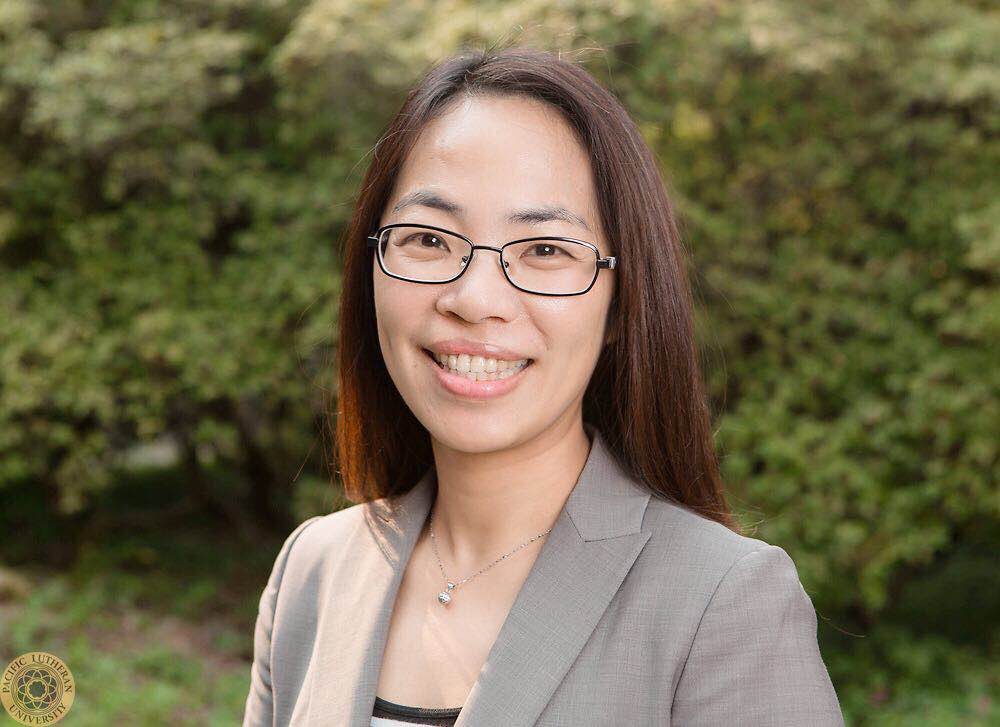Page 24 • (2,269 results in 0.023 seconds)
-
Purpose: The program specific Program Evaluation Committees (ABSN, BSN, MSN, DNP) facilitate the development, maintenance, and implementation of School of Nursing (SoN) evaluation/assessment activities and processes as described in the Systematic Evaluation Plan (SEP). This process is achieved through collaboration with SoN faculty and appropriate SoN committees for the review and analysis of evaluation reports, and with the SoN for discussion, analysis, and quality improvement decision-making
-

professor of accounting at Zhejiang Sci-Tech University in China, and served as the assistant to CFO at Xizi-Otis Elevator Co., Ltd. Dr. Fan has taught a variety of accounting courses at both undergraduate and graduate levels. Her research interests include corporate governance, enterprise risk management, earnings management, demographic characteristics on decision making, and corporate financial disclosure. She is a member of the American Accounting Association (AAA) and has presented her research at
-

professor of accounting at Zhejiang Sci-Tech University in China, and served as the assistant to CFO at Xizi-Otis Elevator Co., Ltd. Dr. Fan has taught a variety of accounting courses at both undergraduate and graduate levels. Her research interests include corporate governance, enterprise risk management, earnings management, demographic characteristics on decision making, and corporate financial disclosure. She is a member of the American Accounting Association (AAA) and has presented her research at
-
Who Am I Today?Honest, objective reflection on your personal preferences and previous academic experiences are essential to the major decision making process. It is important that you evaluate the evidence available to you, so that your decisions can be as accurate and informed as possible. Start by evaluating your academic progress. Use Banner Web to review your CAPP Report/Degree Evaluation. What is your Cumulative GPA? How many credits have you completed? Are you able to recognize any
-
ensure safe, quality health care. 2. Integrate knowledge of technology, information systems, policy, organization, and financing into the improvement of health care delivery and health outcomes. 3. Demonstrate a commitment to ethical decision making, social justice, and advocacy for vulnerable and diverse populations. 4. Develop and use collaborative leadership and management strategies that foster safety and quality improvement throughout a healthcare system. 5. Advance the profession through
-
functions with structures (bylaws, fees, committees) that create an entity with identity and purpose. LIFE class fees are kept as modest as possible. The fees are used to cover instructors honorariums and office overhead costs related to insurance, postage, printing, staff, etc. LIFE offers unique educational experiences, infused with the spirit of camaraderie and adventure, that enrich and enhance the lives of its participants. LIFE students can have a significant involvement in the decision making
-
ensure safe, quality health care. 2. Integrate knowledge of technology, information systems, policy, organization, and financing into the improvement of health care delivery and health outcomes. 3. Demonstrate a commitment to ethical decision making, social justice, and advocacy for vulnerable and diverse populations. 4. Develop and use collaborative leadership and management strategies that foster safety and quality improvement throughout a healthcare system. 5. Advance the profession through
-

of various traditions while exploring and clarifying your own worldview. You’ll find professors committed to excellence in teaching, who will work with you to design a personalized major, double major or minor around your educational goals, and you’ll have opportunities for hands-on learning in research, field work and service learning. Through your study, you’ll be well-prepared for career fields that require critical, contextual and creative thinking, ethical decision- making and working with
-
The faculty and staff of the PLU School of Nursing function in a spirit of mutual respect in dealing with others in the university community. It is thus incumbent upon all members of the SoN to contribute to a culture of respect everywhere on campus, at all times, and in all SoN activities, through our decisions, actions, and speech. The School of Nursing may remove a student from the clinical setting, classroom, lab, or online learning environment if they exhibit disruptive behavior
-
The health, safety and well being of PLU students, staff and faculty participating in Wang Center programs is our primary concern. PLU and the Wang Center are committed to maximizing safety at each program site, making every effort to ensure that participants have the resources and information they need for a safe and successful global education experience. In Case of Emergency If you are faced with an emergency situation, there are many resources available to support you. It is important to
Do you have any feedback for us? If so, feel free to use our Feedback Form.


